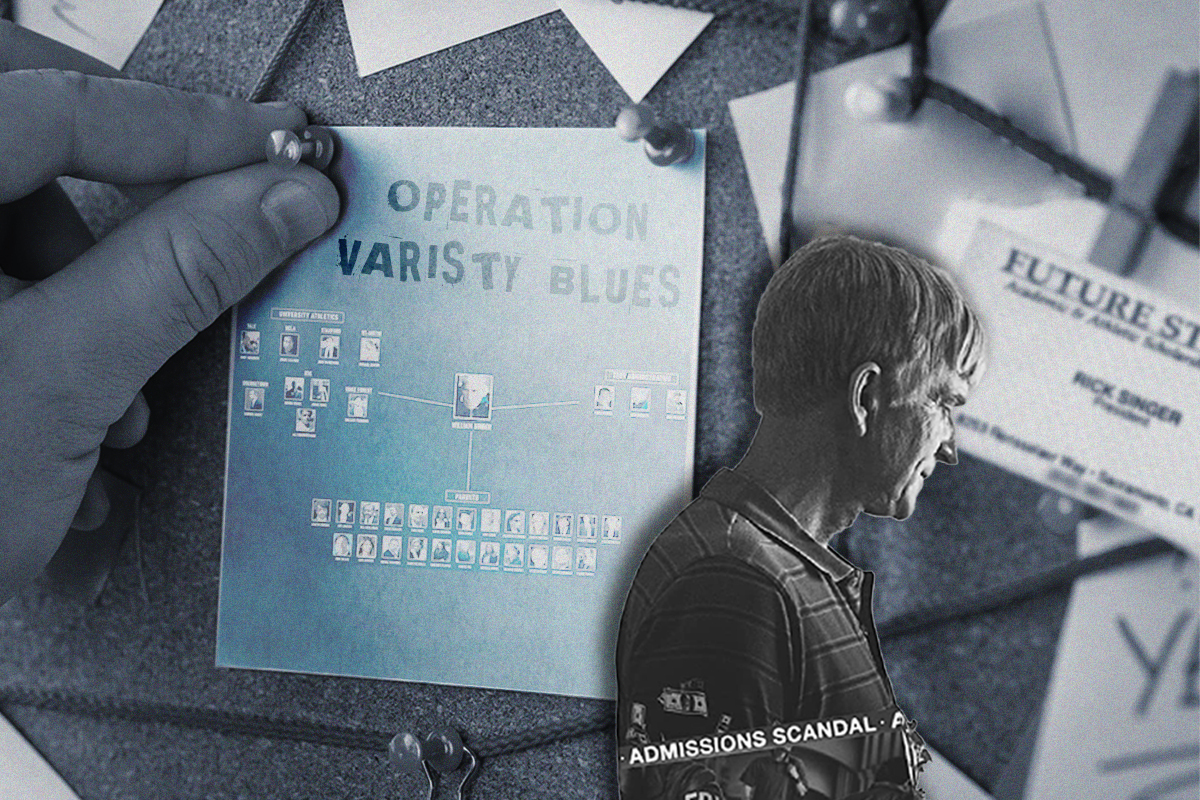“Operation Varsity Blues” – Netflix’s window into Rick Singer’s “side-door” scandal

An arm, a leg or a quarter of a million dollars – that’s what it takes to get into a high stakes university. Millions of seniors apply to college across America every year, for thousands of select spots at top private and public colleges, resulting in many broken hearts and self-deprecation.
For some students though, admission to these schools was guaranteed, thanks to their parents’s deep pockets.
From director Chris Smith and screenplay writer Jon Karmen comes the documentary “Operation Varsity Blues: The College Admissions Scandal,” which details the inside of Rick Singer’s “side-door” approach to help wealthy and affluent parents get their children into top universities across the United States.
This Netflix original premiered two years after the scandal broke and stars Matthew Medine as Singer in the dramatic reenactment of the buildup and climax of this case. Singer’s “side door” is his process of getting these kids into schools disguised as athletic recruits for sports they do not play.
Amongst the typical interviews with reporters, former clients of Singer, admissions officers and b-roll of press videos of those indicted at court hearings, this documentary has two unique aspects to it: the interwoven video submissions of high school and college students offering their take on the whole scandal and the reenactments of the scandal with actors cast as key players – clients, coaches, admissions offers, and Singer.
The video submissions are heartfelt and personal, with each subject expressing his or her grievances with the whole scandal. The film even began showing home videos of seniors getting accepted into college. These two components were unique and made the film more enjoyable.
For the dramatic reenactment, the phone calls shown are verbatim to the calls that transpired between Singer and his clients, since the FBI had his phone tapped for a while. The film has many cuts to a reenactment of an unnamed FBI agent reacting to these calls.
However, these reenactments do not land well. To the viewer, it feels like they are watching a Lifetime movie. This film is meant to incite anger at the injustice of this scandal, yet the dramaticized calls on numerous sprawling estates, standardized tests and eventual arrests, distract from the overall message.
What was done well was who the filmmakers chose to include as interviewees. For instance, the documentary includes many interviews with John Vandemoer, the ex-head coach of the Stanford sailing program. Vandemoer accepted Singer’s donations to the Stanford sailing program in exchange for spots on the team, eventually leading him to plead guilty to conspiracy to commit racketeering for arranging bribes of $110,000 and $160,000.
Unlike the other coaches and administrators caught in this operation, Vandemoer did not enrich himself personally, just the program he’d been coaching for over a decade. His testament does a good job of nailing Singer as apathetic and infuriating.
Another standout in this film is Akil Bello, a test prep expert, and his series of interviews and comments throughout the duration. His main sentiment is that these wealthy people chose to cheat their kids into college, when they already had so many resources at their disposal. While Singer’s “side door” may be temporarily closed, “back doors” still exist as a means for wealthy parents to donate money to schools in exchange for possible acceptance.
Overall, “Operation Varsity Blues: The College Admissions Scandal” does a fine job of explaining Singer’s operation, but likely on scratches the surface of the other “side door” approaches occurring.

